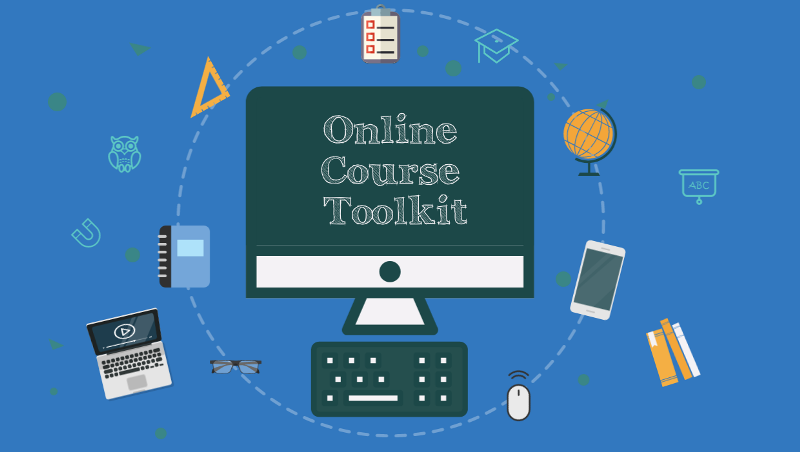Online Course Creation: Crafting Educational Journeys in the Digital Realm
has emerged as a dynamic and transformative venture, empowering educators, industry experts, and enthusiasts to share knowledge, skills, and expertise with a global audience. In the digital era, the accessibility of online learning platforms has democratized education, enabling individuals to engage in meaningful and personalized learning experiences from the comfort of their homes. Crafting an online course involves a multifaceted process, from defining learning objectives and creating engaging content to leveraging technology for delivery and fostering an interactive learning community. As creators embark on this educational journey, they navigate the intersection of pedagogy, technology, and learner engagement, striving to deliver impactful and enriching learning experiences.
The foundation of online course creation lies in identifying clear learning objectives and defining the target audience. Creators articulate the specific knowledge or skills learners will gain through the course, ensuring that content aligns with these objectives. Understanding the diverse needs and backgrounds of potential learners informs decisions regarding course structure, content delivery methods, and assessment strategies. Whether the goal is to teach a technical skill, share industry insights, or provide academic instruction, a well-defined roadmap sets the course for an effective and purposeful learning experience.
Content development is a cornerstone of online course creation, requiring creators to design engaging, informative, and accessible learning materials. Various formats, such as video lectures, written modules, interactive quizzes, and multimedia resources, contribute to a comprehensive learning experience. Creators leverage instructional design principles to organize content logically, ensuring a seamless flow that supports effective comprehension and retention. The incorporation of real-world examples, case studies, and practical applications enhances the relevance and applicability of the course content.
Technology plays a pivotal role in the delivery of online courses, offering a range of platforms and tools to facilitate learning experiences. Learning Management Systems (LMS) serve as central hubs for course content, assignments, and communication. Creators choose platforms that align with their instructional goals, providing features such as discussion forums, assessment tools, and progress tracking. Additionally, video hosting platforms, interactive quizzes, and collaborative tools contribute to a dynamic and engaging online learning environment.
Multimedia elements, particularly video content, have become integral to online course creation. Video lectures, tutorials, and demonstrations provide visual and auditory learning experiences, catering to diverse learning styles. Creators often invest in quality production, incorporating clear visuals, engaging graphics, and professional presentation to enhance the overall learning experience. The strategic use of multimedia not only conveys information effectively but also fosters learner engagement and retention.
Interactivity is a key factor in online course design, promoting active learner participation and fostering a sense of community. Creators integrate discussion forums, group activities, and peer assessments to encourage collaboration and knowledge sharing. Interactive elements, such as quizzes, simulations, and hands-on projects, provide learners with opportunities to apply theoretical concepts in practical scenarios. Building a sense of community within the online course contributes to a supportive learning environment where participants can exchange ideas, seek assistance, and celebrate achievements.
Assessment strategies are thoughtfully designed to evaluate learner understanding and progress throughout the course. Creators implement a mix of formative and summative assessments, including quizzes, assignments, peer reviews, and final projects. The alignment of assessments with learning objectives ensures that learners have opportunities to demonstrate their mastery of the material. Feedback mechanisms, both automated and instructor-provided, contribute to a continuous improvement cycle, allowing learners to refine their understanding and skills.
Accessibility and inclusivity are paramount considerations in online course creation. Creators design courses with features that accommodate diverse learners, including those with different learning styles, abilities, and preferences. Captioning for videos, alt text for images, and accessible design contribute to an inclusive learning environment. Creators prioritize creating content that is culturally sensitive, avoids biases, and fosters a sense of belonging for learners from various backgrounds.
Marketing and promotion are crucial aspects of reaching the intended audience and maximizing the impact of an online course. Creators develop effective marketing strategies, including social media campaigns, email newsletters, and partnerships with relevant platforms or influencers. Clear and compelling course descriptions, testimonials, and previews entice potential learners to enroll, highlighting the value and benefits they will gain from the educational journey.
Adaptability is inherent in the field of online course creation, with creators continuously refining and updating content based on learner feedback, technological advancements, and changes in the subject matter. The ability to incorporate new information, address emerging trends, and respond to the evolving needs of learners ensures that online courses remain relevant and impactful over time.
Monetization strategies vary based on the goals of the course creator. While some courses are offered for free to build a community or establish expertise, others are monetized through one-time payments, subscription models, or tiered pricing structures. Creators may explore bundling courses, offering certificates, or providing additional resources as premium features to enhance the value proposition for learners.
Ethical considerations are integral to responsible online course creation. Creators prioritize transparency, honesty, and integrity in marketing and delivering their courses. Respect for intellectual property rights, acknowledgment of sources, and adherence to ethical guidelines in research and content creation contribute to the credibility and trustworthiness of online courses.
In conclusion, online course creation represents a transformative approach to education, enabling creators to share knowledge and skills with a global audience in a flexible and accessible format. It is a journey marked by innovation, adaptability, and a commitment to facilitating meaningful learning experiences. As creators navigate the intersection of pedagogy, technology, and learner engagement, they contribute to the evolving landscape of online education, empowering individuals to pursue knowledge and skills on their terms.
